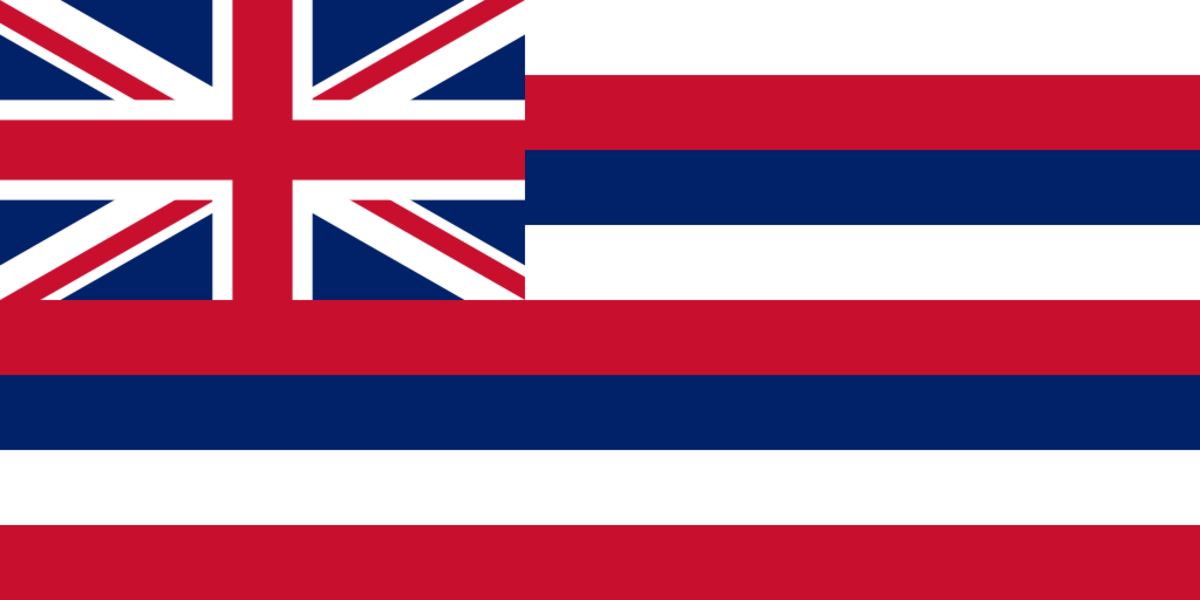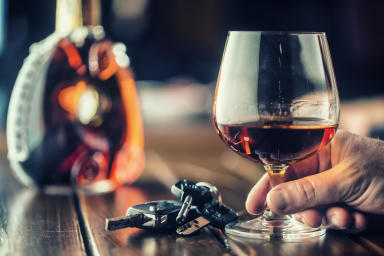Hawaii DUI Laws

Drunk driving is one of the leading causes of motor vehicle accidents in the US, accounting for 31% of total traffic fatalities in 2021. NHTSA figures show that one alcohol-impaired driving death occurs every 39 minutes, on average. In Hawaii during the same year, 29% of the 94 fatalities had a BAC of 0.08%, while 15% had a BAC of 0.15%, according to NHTSA data.
In 2023, the Hawai'i Police Department's Traffic Services Section announced that they had made 617 DUI arrests across the island state from January to August. Of the total DUI incidents, 10 are fatal. The districts with the most recorded arrests are Kona, with 226; Puna, with 156; and Hilo, with 147.
In light of these data and the risks posed by drivers operating under the influence of an intoxicant, the state government has implemented road safety initiatives. As part of their efforts to prevent injuries and deaths caused by impaired driving, the authorities have joined Mothers Against Drunk Driving for "Saturation Saturday," a campaign that aims to educate motorists about the "Drive Sober or Get Pulled Over" program. State legislators have also enacted laws to protect residents and tourists from drunk drivers.
This article discusses Hawaii's DUI laws, personal responsibility rules, and other helpful resources for OVUII motor vehicle operators and other road users, including crash victims and accident plaintiffs.
General DUI/OVUII Laws in Hawaii
Hawaii prohibits motor vehicle owners, whether residents or tourists, from operating a vehicle while under the influence of an intoxicant. Intoxicants could be alcoholic beverages or drugs, including prescription medication. According to Hawaii Revised Statutes § 291E-61, a person driving while under the influence of the above-mentioned substances may face either an administrative per se DUI or an impairment DUI charge.
Administrative Per Se DUIs
A motor vehicle operator may be charged with this type of DUI if they are found to have exceeded the state's legal blood alcohol content limit. The Hawaii BAC limit by age and type of driver is listed below:
In administrative per se DUIs, the prosecution is not required to present additional evidence for the court to convict a drunk driver of OVUII.
Impairment DUIs
Drivers with a BAC within the legal limit can still be charged with impaired DUI if they are caught operating a vehicle under the influence of alcohol or drugs in a quantity that can impair their normal mental faculties and diminish their ability to drive in a prudent manner. Police officers may use the following evidence to prove that the driver has violated the impaired driving rule:
Driving at an excessively slow speed
Stopping too short or too abruptly
Driving erratically
Operating a vehicle at night without headlights
Having a sloppy speech
Displaying weird behavior
Failing a field sobriety assessment
Admitting to being impaired
Aggravated DUI
A driver with a BAC of 0.15% or higher is considered highly intoxicated and may face harsher penalties under the aggravated DUI law. Here are some of the other aggravating factors for DUIs in Hawaii:
Having a history of drunk driving convictions
Driving with a passenger 15 years old or younger at the time of the offense
Causing harm to another person
Underage DUI Laws in Hawaii
Data from the Substance Abuse and Mental Health Services Administration shows that one in every 14 vehicle accidents involves an underage drunk driver. The alarming statistics have prompted states like Hawaii to implement a zero-tolerance policy when it comes to underage DUI. Any person under the legal drinking age of 21 is prohibited from drinking and driving. If they are caught operating a vehicle with any measurable amount of alcohol in their system, they can be arrested and charged with OVUII. There are also instances where the offending minors may be charged with other offenses, such as possession of a fake ID. Those charges may have separate legal ramifications.
Social Host Liability Law
Any adult found to have consciously permitted a minor to drink alcohol under their supervision or on their property can face a misdemeanor charge. Penalties for violating this law include a $2,000 fine, one year of imprisonment, and the possibility of losing personal assets.
Can You Get a DUI on a Bicycle in Hawaii?
People operating a bicycle or moped on the state's roadways are subject to the same DUI laws as motor vehicle drivers since bikes in Hawaii are considered vehicles. According to HRS §249-14, bicycles with at least a 20-inch wheel diameter must be registered and licensed. Alcoholic drinks impair a person's ability to recognize and respond to dangerous changes in the environment, especially in situations that require paying attention to multiple things at once, such as when riding a bicycle in traffic. Drunk cyclists are also less likely than sober bikers to use helmets, which can lead to serious or fatal injuries.
Hawaii's Implied Consent Law
Under the implied consent law, operators of vehicles on a public road, street, or highway or in the waters of Hawaii lawfully arrested for DUI are deemed to have given consent to submit to blood, breath, and urine tests when requested by a law enforcement officer to determine their BAC. The tests are administered if the officer has probable cause to believe that the operator is under the influence of an intoxicant or has consumed a measurable quantity of alcohol while under the age of 21. If a motorist injures himself or someone else, he may be obliged to undergo a test even if he becomes unconscious.
Refusing and Failing a Chemical Test
Despite the Aloha State's implied consent laws, a driver who has been arrested may refuse a breath or blood test. This, however, will lead to a license suspension ranging from two to four years, depending on the number or level of offenses. When a driver declines to undergo a chemical test, the arresting officer will take their license and replace it with a temporary permit. In addition, prosecutors can use the driver's refusal to prove a DUI accusation in court.
Meanwhile, if a driver submits to a chemical test and produces a BAC that exceeds the legal limit, the police officer will confiscate the driver's license and report it to the DMV. The department will then suspend the license for a year for the first offense. Additionally, the results can be used to prove the driver's impairment.
DUI-Adjacent Laws in Hawaii
Open Container and Consumption Laws in Hawaii
The open container rules apply to both the driver and passengers. They are not allowed to carry any bottle, can, or other receptacle containing any intoxicating substance that has been opened, whose seal has been broken, or whose contents have been partially or completely removed. This rule includes alcohol placed in the console compartments and glove box. An exception is when the container is kept in the vehicle's trunk or another part of the car not ordinarily occupied by the driver or passengers.
The alcohol storage law is not applicable to RVs. Hawaii, however, does prohibit the use of alcohol at any scenic lookout, regardless of the type of vehicle someone is driving. Violating the open container law will warrant the offender receiving a jail sentence of up to 30 days and an order to pay a fine of $2,000. Additionally, they will be required to pay $250 to the Drug Demand Reduction Assessment special fund.
Hawaii's Boating Under the Influence (BUI) Law
It is illegal in Hawaii to operate or have actual physical control over any motorized or non-motorized vessel or boat in the state's waters while under the influence of an intoxicating substance. A boater can face a BUI conviction if they have a BAC of 0.08% or higher within four hours of the alleged violation or have consumed alcohol or drugs that impair their mental faculties and their ability to safely operate the watercraft. Offenders may face hefty fines, jail time, community service, license revocation, and substance abuse program completion.
What Are the Penalties for a DUI in Hawaii?
Depending on the number of offenses, OVUII offenders in Hawaii will face penalties such as jail time, hefty fines, and license suspension or revocation. The table below outlines in full the consequences that people can expect if they violate the state's DUI regulations. If there are aggravating elements, such as harming or killing another road user, returning a high BAC level, or having a minor passenger in the car, the following penalties may be increased:
Hawaii's DUI Probation
As part of their sentencing, most of the DUI offenders in the state are placed on probation. They are required to adhere to particular requirements, like maintaining sobriety and receiving alcohol treatment. Failure to follow the probation criteria may result in additional jail sentences. Generally, DUI violators are mandated to spend the minimum amount of time behind bars before being placed on probation. There are situations, however, where a judge or jury grants the offender community service instead of the minimum prison sentence.
Hawaii's Dram Shop Law
The state enforces a dram shop (liquor liability) law to hold establishments that sell, serve, or furnish alcoholic beverages, such as bars, pubs, and restaurants, liable for any damages or injuries caused by a drunk patron they served. The legislation prohibits the above-mentioned types of businesses from allowing the consumption of liquor by a minor, a person at the time under the influence of alcohol, an individual known to be addicted to the excessive consumption of alcohol, or a driver of a vehicle licensed to travel on public highways.
Under the law, victims of drunk driving accidents may file separate lawsuits against the negligent commercial establishment and the impaired driver to receive compensation for their losses.
How Much Can Someone Sue for a Drunk Driving Injury in Hawaii?
Hawaii abides by the modified comparative negligence law, or the 51% rule, which means a plaintiff will not be able to receive compensation, either compensatory or punitive, if they are found to have a higher percentage of liability in the accident. For example, a judge or jury may determine that the total award for the plaintiff is $100,000. They also found that the victim was 20% at fault in the accident. The plaintiff's percentage of fault reduces their total compensation to $80,000. To prove that the defendant has greater responsibility for the DUI accident, the injured person or the family of the victim must establish that the defendant:
Violated the state's DUI laws, which are designed to safeguard road users and pedestrians;
Caused someone's injury or death.
DUI victims are eligible to receive compensation that covers their economic losses, such as medical bills and lost earnings, and non-economic damages, like pain and suffering. However, the Aloha State places a $375,000 cap on non-economic damages. There is no fixed amount of compensation for economic damages because every DUI case is unique. It is ideal for victims to hire an experienced DUI or personal injury lawyer or law firm to get expert assistance in navigating the legal system.
The Statute of Limitations in Hawaii
Most personal injury cases, including car or pedestrian accidents caused by DUI, have a two-year statute of limitations. This means that individuals who have been harmed in a DUI crash may file a claim seeking compensation for their physical injuries and mental trauma within two years from the date of the accident. For automobile accidents covered by personal injury protection benefits, the deadline could be longer. Other exceptions to the rule include minors and people who are physically incapacitated. Victims under 18 can file for compensation two years from the moment they reach the legal age. In addition, the countdown to the deadline begins with the recovery of the incapacitated victim. Given how the statute of limitations may differ due to the unique situations of the victims, it is important for them to act quickly and consult an experienced lawyer to ensure they receive the compensation they deserve.
Legal Resources for Folks Injured by an Impaired Driver in Hawaii
Drunk driving accidents take a massive toll on people’s lives, as these unfortunate events cause injuries and even death. DUI cases can be complex, which is why victims should have access to helpful legal and survivor support options. This section provides a list of some of the available resources for injured individuals or families whose loved ones were killed by an impaired driver.
Hawaii Online Pro Bono
Volunteer Legal Services of Hawaii offers free legal assistance to low- and moderate-income Hawaii residents through HOP, an online legal advice clinic where clients can receive advice and counsel about a legal issue from a volunteer lawyer. The program is part of the American Bar Association's Free Legal Answers national project.
Lawyer Referral & Information Service
The Hawaii State Bar Association runs a Lawyer Referral & Information Service dedicated to helping individuals seeking legal assistance and representation. This public service, the only bar-sponsored attorney referral in the state, has been serving residents for more than 44 years. It connects plaintiffs with attorneys handling criminal, traffic, and personal injury cases, among others. Read the responses to the frequently asked questions about the service. For additional information on Hawaii’s LRIS, clients should contact the office at 808-537-9140 or at LRIS@hsba.org.
Mothers Against Drunk Driving Hawaii
MADD Hawaii provides free services to victims and survivors of drunk driving. The organization has a team of victim-focused and compassionate volunteers available 24/7. They provide victims and their families with emotional support and guidance through the civil and criminal justice systems. MADD also helps prepare victim impact statements and referrals to appropriate resources for additional assistance. Additionally, survivors who are looking for supportive materials on victimization topics may also request them from the organization.
eCourt Kokua
The Judiciary Information Management System (JIMS) eCourt Kokua provides individuals with public access to court records and case information from traffic cases, Circuit Court and District Court civil and criminal cases, and appellate cases. Those searching for legal documents and forms may access the website for helpful how-to guides. Additional information is provided in the Frequently Asked Questions section. For questions, site visitors should contact 808-539-4909, Monday through Friday, 7:45 a.m. to 4:30 p.m. They can also email queries to pao@courts.hawaii.gov.
Expertise.com StaffAuthor
Step into the world of Expertise.com, your go-to hub for credible insights. We don't take accuracy lightly around here. Our squad of expert reviewers, each a maestro in their field, has given the green light to every single article you'll find. From rigorous fact-checking to meticulous evaluations of service providers, we've got it all covered. So feel free to dive in and explore. The information you'll uncover has been stamped with the seal of approval by our top-notch experts.




